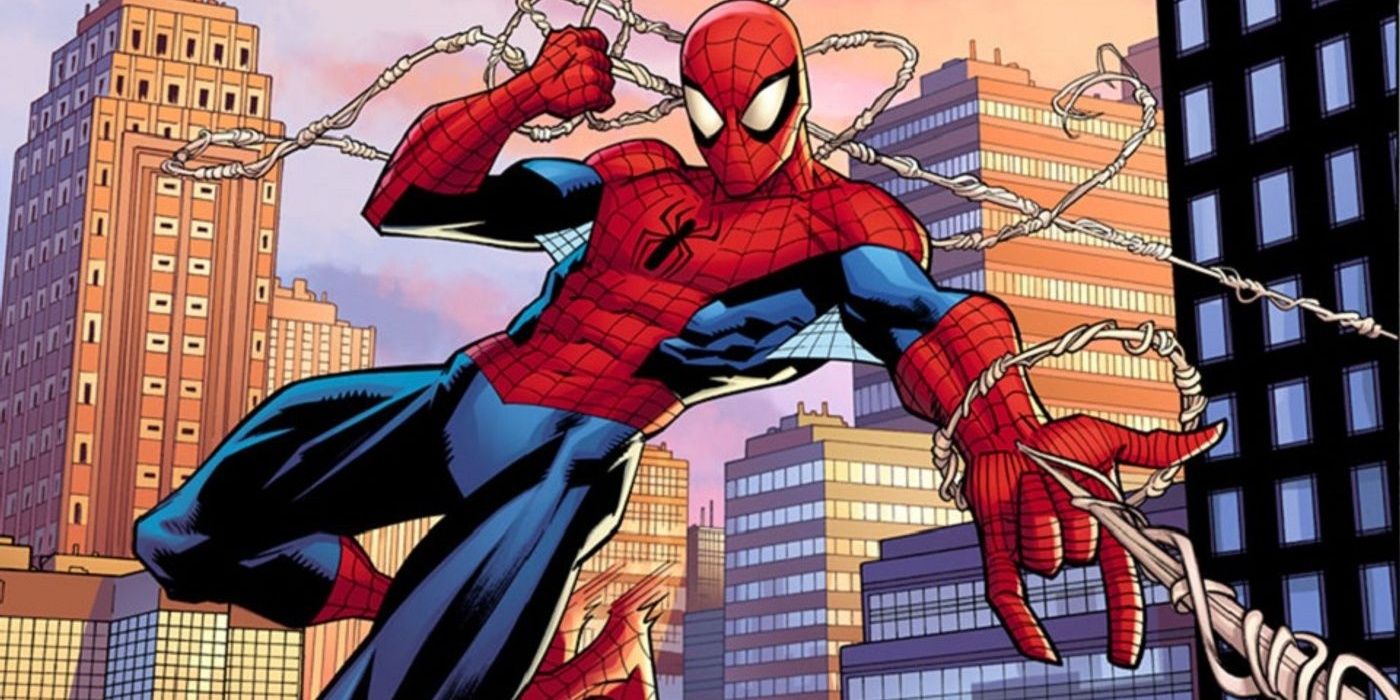Spider-Man is one of Marvel’s most iconic heroes, known across the world as a representation of how to temper power with responsibility. However, for all the adulation Spider-Man gets for his commitment to doing the right thing, there have been times when he has taken his ideology to extremes, often harming himself or those around him in the process. Spider-Man #10 (by Dan Slott, Christos Gage, Mark Bagley, John Dell, Andrew Hennessy, Edgar Delgado, VC’s Joe Caramagna) managed to avoid this, but it is a reminder that even after all these years, Peter Parker still has issues with going too far in the name of responsibility.This time he heightened the strength of his spider-sense to an overwhelming degree. It would have killed him had it not been for the intervention of Norman Osborn. However, while this could be a chance to examine how Spider-Man’s spider-sense is a potential weakness, it is overshadowed by an even greater one: his guilt over not being able to save everyone. For most of his life, Peter Parker has agonized over how he can’t be there for everyone, and this latest adventure highlights the dangerous lengths he is willing to explore to try and compensate for this perceived shortcoming.After missing some people during a building fire, Spider-Man was overcome with an overwhelming sense of guilt. He became determined never to overlook anyone again, and requested that Norman Osborn enhance his spider-sense. The process was a success, and it altered Peter’s spider-sense so that he could sense when people are in danger, even if he wasn’t in the immediate vicinity.RELATED: Marvel’s Very First Spiderman Was a Cold-Blooded Killer
Spider-Man is one of Marvel’s most iconic heroes, known across the world as a representation of how to temper power with responsibility. However, for all the adulation Spider-Man gets for his commitment to doing the right thing, there have been times when he has taken his ideology to extremes, often harming himself or those around him in the process. Spider-Man #10 (by Dan Slott, Christos Gage, Mark Bagley, John Dell, Andrew Hennessy, Edgar Delgado, VC’s Joe Caramagna) managed to avoid this, but it is a reminder that even after all these years, Peter Parker still has issues with going too far in the name of responsibility.
This time he heightened the strength of his spider-sense to an overwhelming degree. It would have killed him had it not been for the intervention of Norman Osborn. However, while this could be a chance to examine how Spider-Man’s spider-sense is a potential weakness, it is overshadowed by an even greater one: his guilt over not being able to save everyone. For most of his life, Peter Parker has agonized over how he can’t be there for everyone, and this latest adventure highlights the dangerous lengths he is willing to explore to try and compensate for this perceived shortcoming.
After missing some people during a building fire, Spider-Man was overcome with an overwhelming sense of guilt. He became determined never to overlook anyone again, and requested that Norman Osborn enhance his spider-sense. The process was a success, and it altered Peter’s spider-sense so that he could sense when people are in danger, even if he wasn’t in the immediate vicinity.
#SpiderMans #Greatest #Weakness #Power
Note:- (Not all news on the site expresses the point of view of the site, but we transmit this news automatically and translate it through programmatic technology on the site and not from a human editor. The content is auto-generated from a syndicated feed.))



